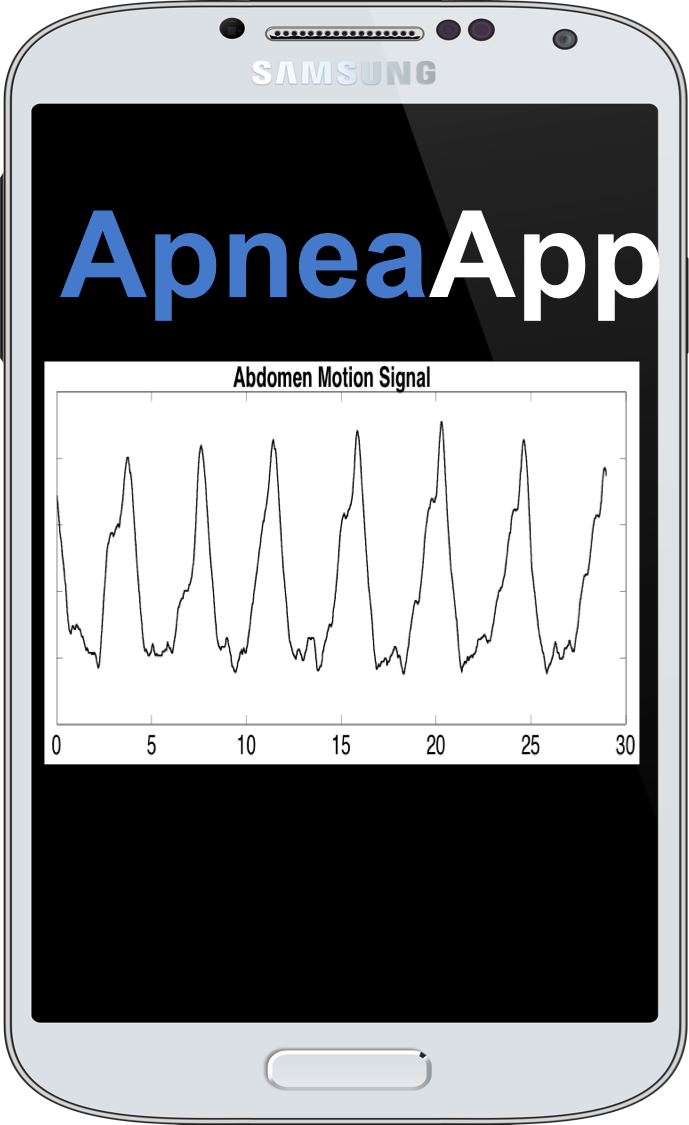What is ApneaApp?
Sleep apnea is a common medical disorder that is estimated to affect more than 18 million American adults and is linked to attention deficit/hyperactivity disorder, high blood pressure, diabetes, heart attack, stroke, and increased motor vehicle accidents. Diagnosing sleep apnea in the clinic requires the polysomnography test, which is an expensive, time-consuming and labor-intensive process. While portable recording systems are being developed for use in home settings, they require instrumenting either the patient and can result in high failure rates due to detachment of sensors during sleep.
ApneaApp is a contactless solution for detecting sleep apnea events by monitoring the minute chest and abdomen movements caused by breathing on smartphones. Our system works with the phone away from the subject and can simultaneously identify and track the fine-grained breathing movements from multiple subjects. We do this by transforming the phone into an active sonar system that emits frequency-modulated sound signals and listens to their reflections. We have developed algorithms that identify various sleep apnea events including obstructive apnea, central apnea, and hypopnea from the sonar reflections.
Publications
Contactless Sleep Apnea Detection on Smartphones [paper][ppt]
Rajalakshmi Nandakumar, Shyam Gollakota, Nathaniel Watson The 13th Annual International Conference on Mobile Systems, Applications and Services (MobiSys'15)A Contactless System for Respiratory Event Identification (Abstract)
Rajalakshmi Nandakumar, Shyam Gollakota, Nathaniel Watson Meeting of the Associated Professional Sleep Societies (SLEEP'15) Oral PresentationFrequently Asked Questions
Does ApneaApp work on any smartphone?
Our current code is designed for Android phones with atleast two microphones. This includes Samsung Galazy S4 and S5 and HTC One.
Would ApneaApp work with two people on the bed?
ApneaApp can separate the breathing movements for multiple people as long as they are separated by 10 cm.
What medically significant metrics does ApneaApp produce?
ApneaApp tracks the number of obstructive apnea, central apnea and hypopnea events as well as estimates the total sleep time. It also can detect periodic limb movements and estimate the Apnea-Hypopnea Index (AHI) which is the key metric used to diagnose sleep apnea.
Can I download ApneaApp and get sleep apnea diagnosis today?
iApneaApp technology has been licensed to a major sleep healthcare company. You can now download the app here.

